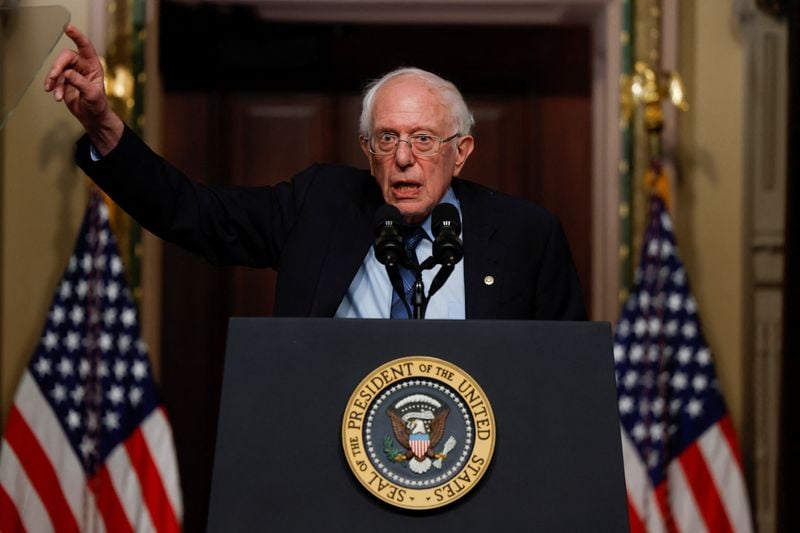
There’s a buzz online after Senator Bernie Sanders, one of the most prominent voices in progressive politics, seemed to acknowledge the challenges facing the American Dream. I
n a recent tweet, Sanders pointed out the stark economic realities many Americans are facing today, sparking a conversation about the impact of current economic policies.
Sanders tweeted, “What happened to the American dream? Despite huge increases in productivity, only about half of Americans born in the 1980s are better off financially than their parents compared to 90% born in 1940, according to MIT. We need an economy that works for all, not just the few.”
While Sanders didn’t explicitly blame progressive policies, his tweet highlights the frustration many feel with the current state of the economy. He’s known for advocating for policies that challenge big business and push for greater government intervention in the economy. But the statistics he shared underscore a troubling trend: despite years of increased productivity, the financial well-being of many Americans has stagnated.
The numbers he cites are telling. A report from MIT shows that only about half of Americans born in the 1980s are better off financially than their parents—a stark contrast to the 90% of those born in 1940 who were in a better financial position than the previous generation.
This decline suggests that something significant has shifted in the U.S. economy over the past several decades.
Critics of progressive politics might interpret Sanders’ tweet as an admission that policies aimed at curbing corporate power and redistributing wealth have, in some ways, failed to deliver on the promise of economic prosperity for all. They argue that the shift towards more government regulation and anti-business legislation has stifled economic growth and made it harder for individuals to achieve the American Dream.
On the other hand, Sanders and his supporters might see this as evidence that the current system is rigged in favor of the wealthy few, and that more needs to be done to ensure that economic gains are shared more broadly.
For them, the solution isn’t less regulation or a return to free-market policies but rather a more equitable distribution of wealth and opportunities.
The debate over the American Dream is as old as the nation itself, but Sanders’ tweet brings it into sharp focus. Is the problem that progressive policies have gone too far, or is it that they haven’t gone far enough? As the conversation continues, one thing is clear: the dream that once defined America is now more elusive than ever for many.

